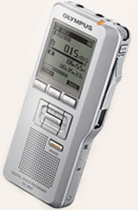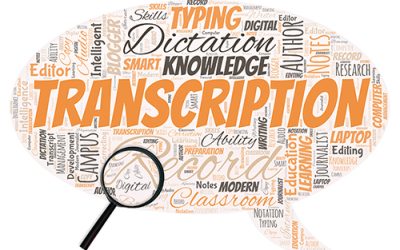
Badly recorded audio files will be difficult to transcribe and will prove to an expensive option as well. Therefore, try not to compromise on quality when it comes to selecting recording equipment as this will cost you more in the long run, especially if you plan to record files on a routine basis.
Selecting Digital Recording Equipment – Factors to Consider
- Recording quality – This will normally involve SHQ – stereo high quality, HQ – high quality, SP (short play) and LP (long play). Since, SHQ is of top stereo high quality it will take up more memory space and will be able to record only less. Stereo recording will be more apt to record meetings, conferences or focus groups where there will be a larger number of people. For example, Olympus digital recorder is a convenient choice that provides easy and productive dictation. This high quality recording system offers automatic retrieval of typed documents and distribution of recordings via email.
- Recording frequency – Different recording qualities involve different frequency responses. The frequencies available in various recording equipment differ, but most of them will record a one–to–one or one–to–two interview to satisfactory quality at SP or LP.
- Recording time – This will depend on your digital transcription needs and the recording quality chosen. For example, you will need a longer recording time, particularly if you are researching in the field for significant lengths of time. On the other hand, if you are recording one–to-one interviews, notes or dictation, there is no need to save vast amounts of data on to the machine. So, consider your recording needs and do not buy a digital recorder that gives you much more time than you require.
- Computer interface – If you plan to send the audio files for transcription to a transcriptionist, you need to download the same to your computer first. They can be transferred via FTP or in some cases emailed. On the other hand, if you plan to do the transcription yourself, you need to take it directly from the note taker (as recorders with no download interface are usually called). Choose a recorder that will link to your PC with USB interface or through a port with a CD.
- File type – Choose specific file types such as WAV (uncompressed with great quality), WMA (Windows Media format, compressed with reasonable quality) or DSS (Olympus proprietary transcription file, highly compressed and specially designed for voice). Hence, select the specific file type before sending the same for transcription to transcriptionists.
- Links with speech recognition software – Some digital recorders connect with speech recognition software that is usually used for a single-voice recording such as dictation of notes. The challenge here is that you need to utilize some time to train the software to familiarize with your voice. Moreover, you will have to check the transcribed material for accuracy.
While you can choose the best digital recording equipment going by the above mentioned qualities, the easier option is to rely on a dependable legal transcription company. With a quality service provider, you benefit from accurate and customized digital transcription services at competitive rates.



